The MicroResearch (MR) vision is to train, mentor, and support multidisciplinary community focused research teams to improve health and well-being outcomes in low-income countries and in communities within Canada. To accomplish all these goals, MR conducts workshops to train community members and health professionals on community health research methods and skills.
The process “democratizes” the opportunity to get involved in research, illustrating that it is not just for academics. MR supports participants in choosing a research question that they feel is most important to their local needs. Participants use local knowledge and the learned research methods and skills to address their question, taking into consideration the context, culture and resources they have available. In this way research is “decolonized” from historic colonial and local hierarchical barriers that may exist in academic settings.
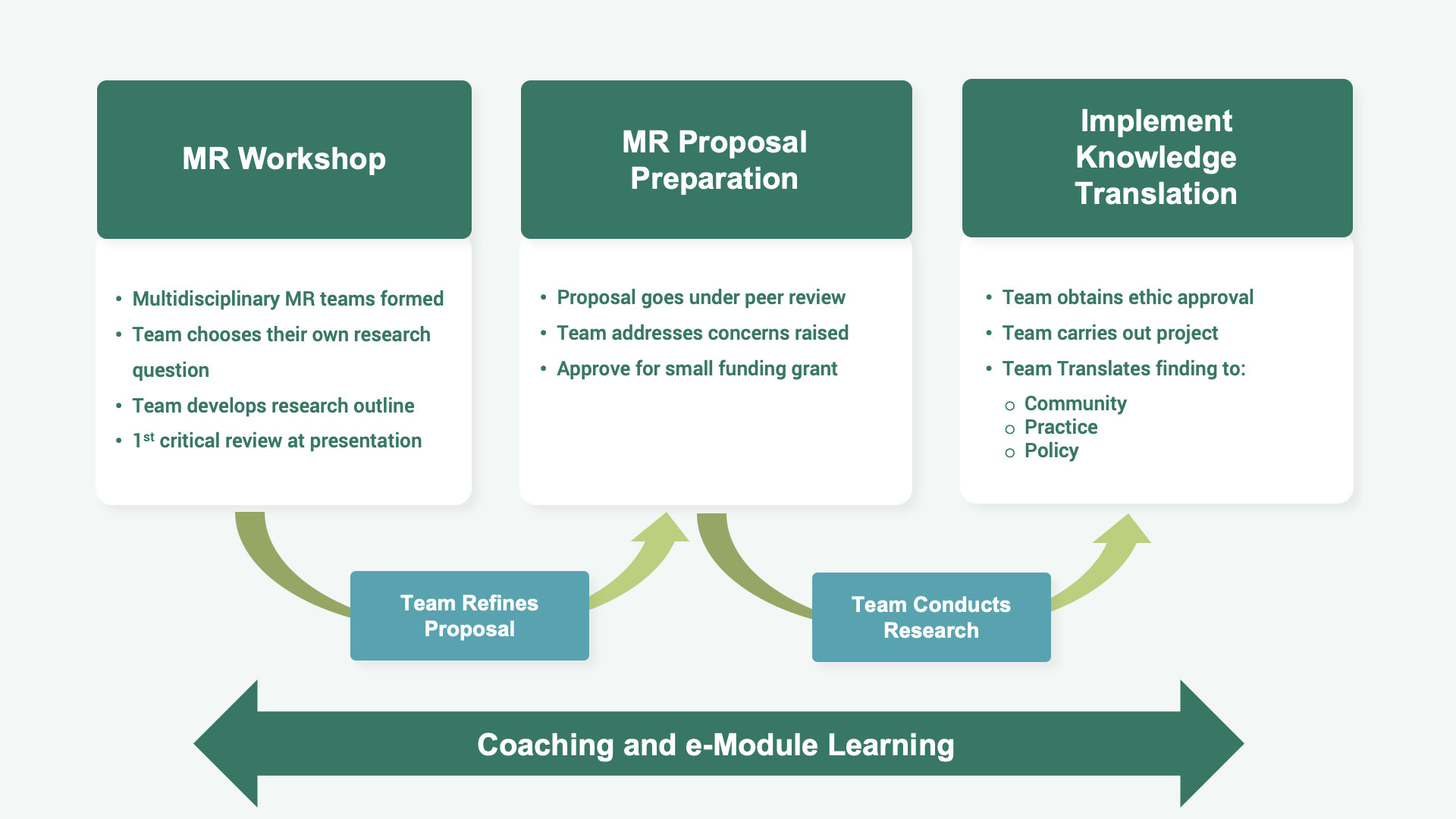
Experienced researchers, academics, and clinicians volunteer with MicroResearch to teach 40-hour workshops with interdisciplinary trainees from medicine, nursing, social work, education, community organizations, public safety etc. To ensure success, local collaborators participate as teachers, providing the necessary local and cultural context. The half-day format allows participants to still attend to their duties during the workshop weeks – a must in developing countries.
During the 2-week workshop, 20 to 30 participants are taught practical research skills in daily seminars. Small groups transform the group’s research idea into a “rough” research project with a knowledge translation plan under the guidance of a coach mentor.
Through the workshop, participants receive access to a web-based clinical research curriculum adapted from a very successful Canadian clinician scientist training program (CCHCSP). Over the following months, the groups fine-tune their research proposal with the help of their coaches.
MicroResearch grant program provides small grants for teams to carry out their proposed projects. Upon completion of a MicroResearch workshop, teams work with their coaches to apply for a grant. Grant applications are reviewed by a team of international peer-reviewers. Reviewers are selected based on their relevant expertise. They are sensitive to the culture and offer constructive critique for improvements.
The Research Skills Workshops have in-person, virtual, and hybrid options. MicroResearch works with the local host site to tailor the program and curriculum to the needs of the targeted audience and to ensure the applicability to the local culture and context.
The facilitation and teaching of the workshops is a collaborative effort between MicroResearch and the local host site. The host site identifies appropriate individuals to help co-teach and coach at the workshop. In order to orientate these individuals, as well as other MicroResearch volunteers, a Train the Trainer Workshop has been developed. This workshop is taught over two 2-hour sessions, outlining the purpose of MicroResearch, how the workshop works, what is covered in the workshop, and the roles and responsibilities of the volunteers involved.
Mini-Writing Workshops are delivered for researchers who have conducted their projects, have analyzed their findings, and are ready to write up their results. Workshop facilitators and coaches work with the participants to help identify the “golden nugget” of their findings and develop the backbone of their manuscript. This is open to both MicroResearch graduates and other researchers at the local site.
Still in development, these mini-workshops will provide a more in-depth look at planning and strategizing for the knowledge translation phase of the research project. This workshop will be open to MicroResearch graduates who are currently conducting their research projects.
As a way of connecting researchers and sharing ideas and knowledge, MicroResearch has delivered Forums, both in-person and virtual. These events offer a blend of keynote presentations, educational sessions, and presentations by MicroResearch teams on their projects. Each Forum is based around a specific theme relevant to the realm of community based research. These are attended by MicroResearch graduates, volunteers, and international experts in the field. They are an opportunity for researchers from around the world to connect and collaborate on future projects.
A result of the MicroResearch Forums, organized Networks have formed, connecting researchers with mutual interests together. The hope is that these Networks offer a chance for further collaboration and the sharing of research. To get in touch with a Network, please reach out to microresearch@dal.ca
MicroResearch impacts people’s lives, beyond their participation in the workshop or a project. Watch the digital stories below to see it for yourself!
These digital stories were made in through an educational program held in January 2024 in collaboration with Mbarara University of Science and Technology, University of Calgary, and Canadian Partnership for Women and Children’s Health.
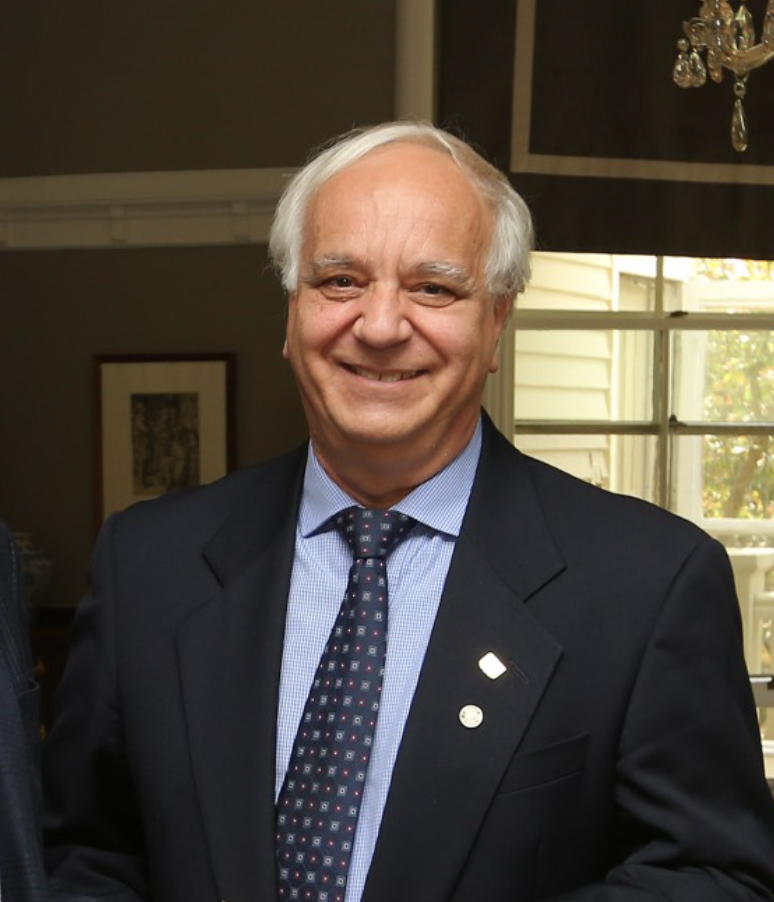
Dr. Bob Bortolussi is a Professor Emeritus of Pediatrics (Infectious Diseases) at Dalhousie University and IWK Health where he is an active researcher, teacher, and mentor. Dr. Bortolussi edited “The Handbook for Clinician Scientists,” which is used in many Universities in Canada and as part of the MicroResearch Curriculum.
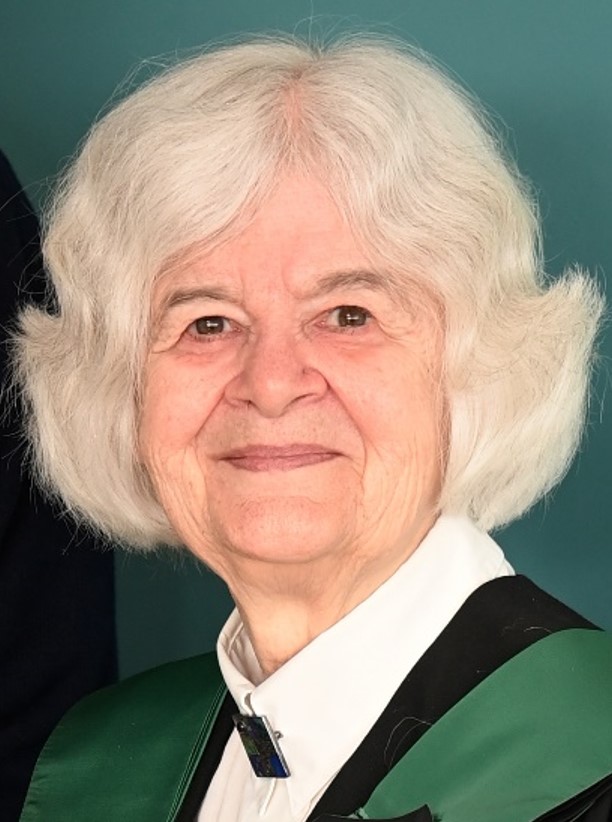
Dr. MacDonald is a Professor Emerita of Pediatrics (Infectious Diseases) at Dalhousie University and the IWK Health and a former Dean of Medicine at Dalhousie University. She has long been interested in community capacity building not only in developing countries but also in Canada.
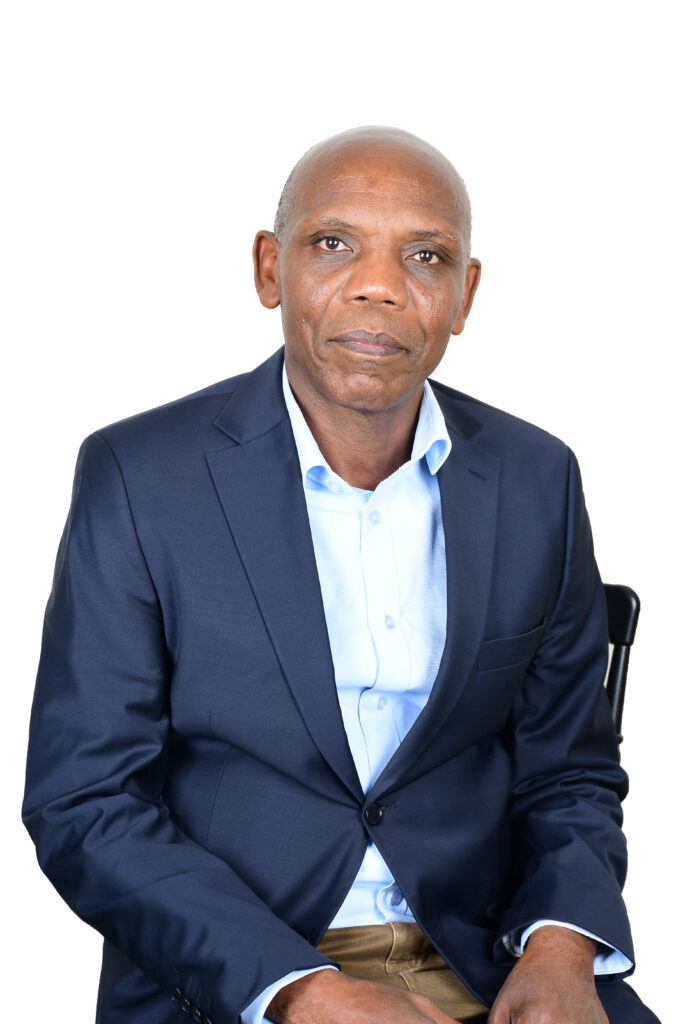
Dr. Kabakyenga is the former Director of the Maternal Child Health Institute at Mbarara University of Science and Technology in Uganda. Before assuming the office of the Dean, he was Head of Department of Community Health at the same University and was instrumental in developing a community based education program.
Executive Director, MicroResearch, Halifax, Canada
Kelly.hunter@iwk.nshealth.ca
Social Media and Communications Coordinator for East Africa
fnmusana@gmail.com
Coordinator, MicroResearch, Halifax, Canada
Tammyl.lamb@iwk.nshealth.ca
Manager, MicroResearch Hub Site Mbarara, Uganda
hcupmcdn@gmail.com
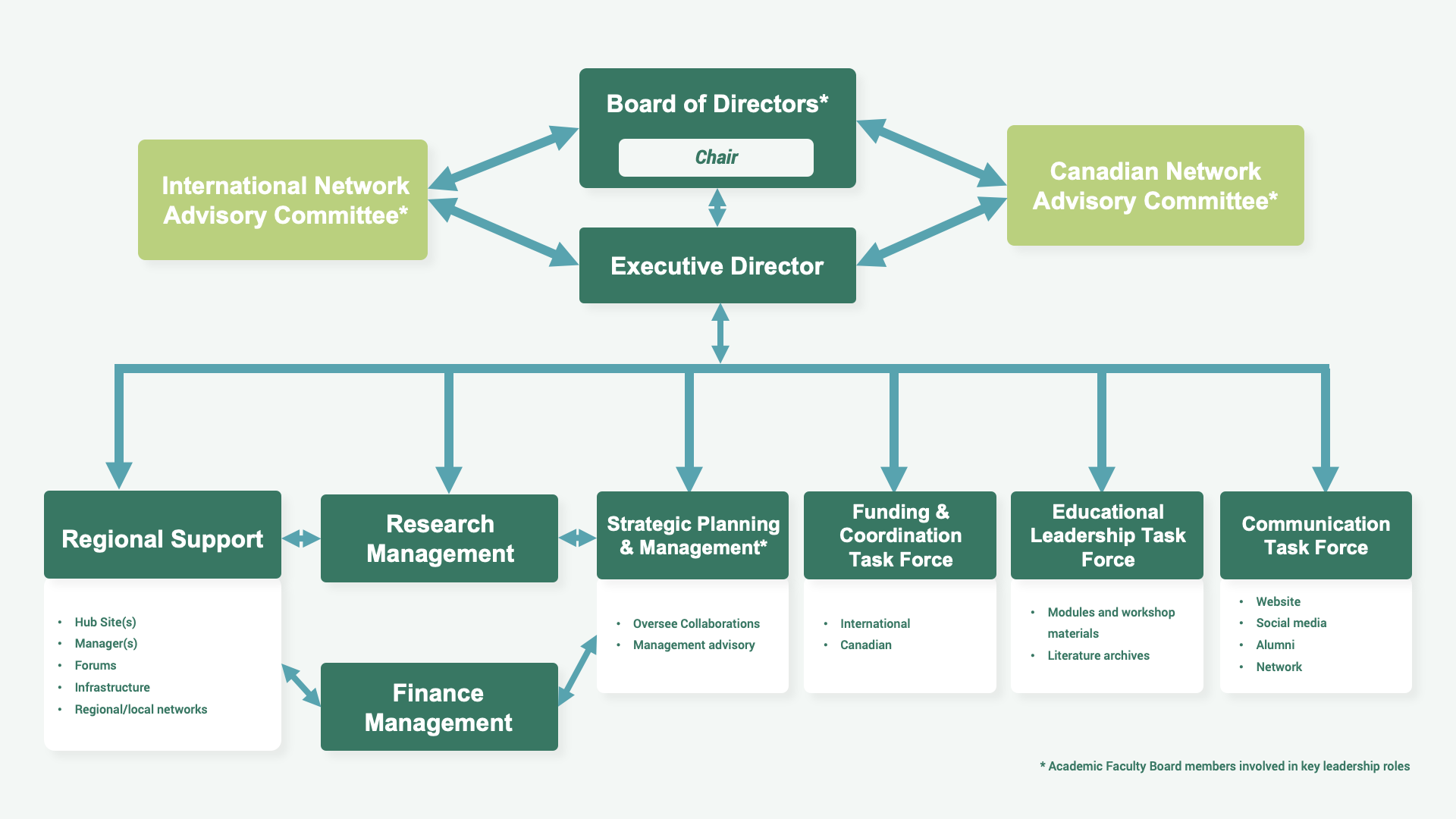
Without the encouragement and support of these organizations and individuals, MicroResearch could not exist. We are deeply indebted to them for their ongoing assistance.
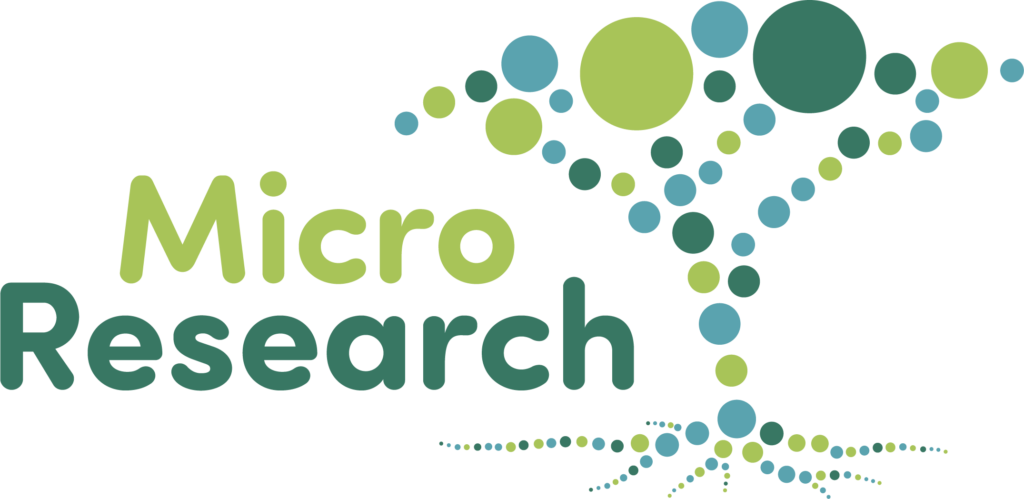
Improving health care outcomes with innovative community based research
Copyright © 2025 MicroResearch